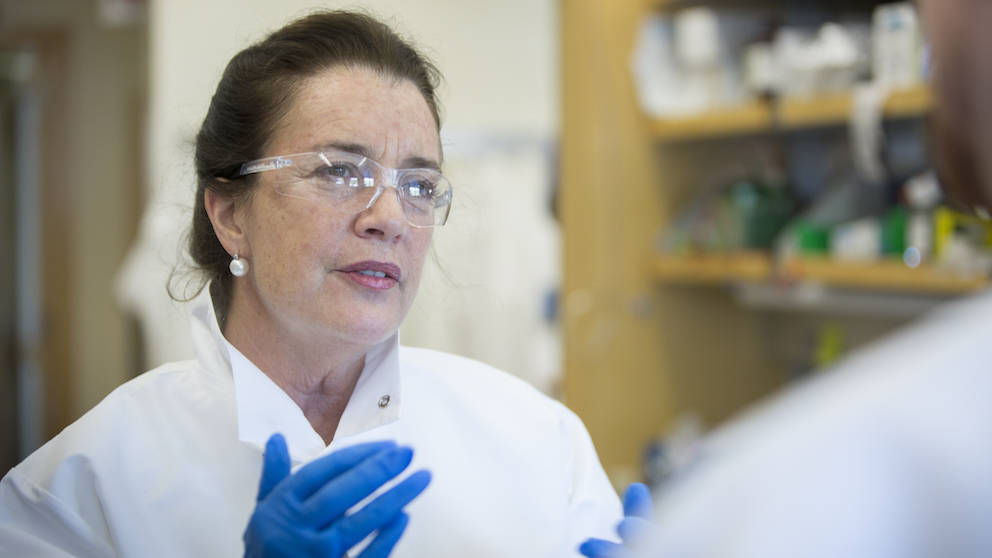
Rosenthal joins international team to study the immune system’s effects on the heart’s connective tissue.
An international research team has established “The Inflammatory-Fibrosis Axis in Ischemic Heart Failure: translating mechanisms into new diagnostics and therapeutics (Immuno-Fib HF)” collaboration. Immuno-Fib HF aims to advance the field of immuno-cardiology by investigating ways to harness the power of the immune system to improve the treatment of patients with heart disease. The effort is being funded with a sum of $6.5 million (€5.9 million) by the Leducq Foundation within the scope of a Transatlantic Networks of Excellence program.
Nadia Rosenthal, Ph.D., F.Med.SciInvestigates the role of genetic variation and the immune system in tissue repair, focusing on cardiovascular and skeletal muscle diseaseNadia Rosenthal, Ph.D., FACMS, professor and scientific director of The Jackson Laboratory (JAX) in Bar Harbor, Maine, is among the Immuno-Fib HF collaborators. Rosenthal also runs a research program in the Imperial Centre for Translation and Experimental Medicine at Imperial College, London, where she holds a chair in cardiovascular science. Elvira Forte, Ph.D., of Rosenthal’s lab at JAX and Susanne Satler, Ph.D., of Imperial College are on the Leducq grant team.
Carefully regulated low level inflammation and fibrosis is required to maintain heart health. Conversely, unchecked inflammation and fibrosis represent cardinal hallmarks of adverse myocardial remodeling and heart failure (HF) progression and thus, are key components of most common heart diseases. Currently the exact cell types that mediate these important pathological processes are still not well defined. As a consequence, it has remained challenging to develop the needed therapies that effectively target inflammation and fibrosis in the diseased human heart. Immuno-Fib HF researchers plan to establish the molecular basis by which inflammation in the heart orchestrates key elements of fibrosis, accelerate innovation in immuo-cardiology through team science, and train the next generation of scientists studying heart health.
The Leducq Foundation’s mission is to improve human health through international efforts to combat cardiovascular disease and stroke. The foundation’s principal grant program, the Transatlantic Networks of Excellence for Cardiovascular and Neurovascular Research, promotes internationally collaborative basic and translational research. Scientists supported in this program work together to further knowledge of cardiovascular and neurovascular disease, with an aim toward improving outcomes for patients.
Rosenthal says this team approach will be extremely helpful in making progress in understanding the heart-immune connection. “This Leducq network brings together some of the best minds in the fields of cardiovascular disease and immunology,” she says. “I'm honored and delighted to be part of the team.”